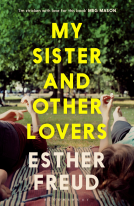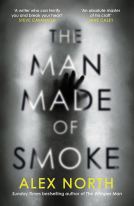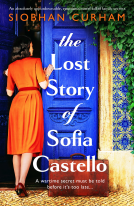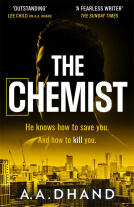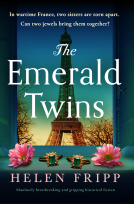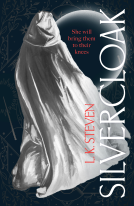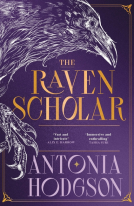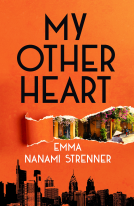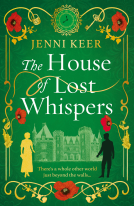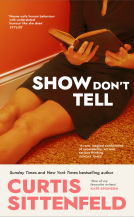
The Path to Change
Thoughts on Politics and Society
by Pope Francis; Dominique Wolton
This title was previously available on NetGalley and is now archived.
Send NetGalley books directly to your Kindle or Kindle app
1
To read on a Kindle or Kindle app, please add kindle@netgalley.com as an approved email address to receive files in your Amazon account. Click here for step-by-step instructions.
2
Also find your Kindle email address within your Amazon account, and enter it here.
Pub Date 9 Aug 2018 | Archive Date 18 Dec 2018
Pan Macmillan | Bluebird
Talking about this book? Use #ThePathToChange #NetGalley. More hashtag tips!
Description
Pope Francis has thoroughly re-engaged the Catholic Church with the modern world, by tackling the difficult and urgent questions that we face as a civilization, in order to illuminate the path to change. French sociologist Dominique Wolton interviewed Pope Francis regularly over the course of a year, and their open, warm dialogue builds a detailed picture of how Pope Francis became the most popular leader the Catholic Church has ever seen.
The Pope’s clarity, humility and humanity are brought to the fore by Dominique Wolton’s engaging and relevant questions. As well as revealing fascinating insights into his early life, in The Path to Change Pope Francis freely addresses the major issues of our time: peace and war, politics and religion, globalization and cultural diversity, fundamentalism and secularism, Europe and migrants, ecology, family, time, trust and joy.
Advance Praise
'The man who emerges here is affable, approachable, always unpretentious, and deeply human.' Booklist
'The man who emerges here is affable, approachable, always unpretentious, and deeply human.' Booklist
Available Editions
| EDITION | Other Format |
| ISBN | 9781509893164 |
| PRICE | £20.00 (GBP) |
| PAGES | 336 |
Featured Reviews
A Future Of Faith: The Path Of Change In Politics And Society by Pope Francis, Dominique Wolton and Jorge Mario Bergoglio is a comprehensive set of questions and answers with Pope Francis. He addresses the issues of today, urging us to build bridges and not walls between us.
Pope Francis sees money as the greatest threat to peace in society today.
There were speeches of Pope Francis' included in the book too.
This was a title I was invited to read and not my usual choice of book. I recognise that Pope Francis is wise and educated on today's world. I must admit, I found the book very intellectual and normally prefer lighter reads, so I only read half of the book as it became too heavy going for me. The fault lies with me. The book is well written and Pope Francis is very likable. It is a great read if you like question and answer sessions on the state of today's world.
I received this book for free from Net Galley. A favourable review was not required and all views expressed are my own.
It was really great to read the beliefs and ideas of the head of the Catholic church. I almost passed this book up because I'm an atheist, but I was also intrigued - could the ideas of Pope Francis be reconciled with my own ideas on the world?
This Pope is clearly a very intelligent and benevolent man; a man who is at the head of an institution that has spent centuries doing a lot of bad things, as well as good. He takes his position very seriously and seems to approach all the interview questions with a genuine love for humanity and a fairly open mind. Of course, he is still a traditionalist in many ways, but his ultimate desire for peace over war, understanding over hatred, and a better future over lingering in the past, made this a heartwarming read.
I should warn that it's quite wordy and dense - I wouldn't recommend this for those looking for a light read - but it takes on some huge topics so I suppose that's to be expected.
 Katy H, Reviewer
Katy H, Reviewer
Although perhaps slightly wordy for my liking, and I definitely had to refer to Google one too many times for definitions of certain words, I did enjoy this overall.
The Catholic Church has taken a hitting recently with many a scandal coming to light, it’s easy to say Pope Francis has taken the church into the 21st Century.
This book is an insightful look at a man trying to include all, in a Church that’s trying to rebuild its foundations.
Not a believer myself, this book is certainly eye-opening.
 Andrew S, Reviewer
Andrew S, Reviewer
In this book Pope Francis lays out his thoughts on a variety of issues, during a series of twelve meetings with French researcher, intellectual and writer Dominique Walton. In addition to a summary of the discussions, the text includes extracts from sixteen speeches delivered by the Pope since his election in 2013. The subject matter includes, amongst other things: globalisation, diversity, communication and what the the pontiff believes to be the greatest threat to world peace.
My position on religion is that of an agnostic, or perhaps (a new word I was recently introduced to) an apatheist. I'm certainly not against religion, in any of it’s many forms; I believe that, at its best, religion can propose a set of moral guidelines or rules by which societies and individuals can set out their stall or judge themselves by. In other words, I do think that the church, by working as common conscience and by vocalising its thoughts on important issues, can serve a useful purpose.
So what of this book? Well, the first thing to say is that it’s not an easy read. To me, it quickly highlights one of the issues the church has, that of clearly communicating its message to non-believers. Pope Francis is clearly a very intelligent, well read and articulate man and when he speaks on a number of topics I found myself having a good deal of sympathy with his thoughts. The problem is that there is a lot of difficult stuff to get through to fully comprehend where he’s coming from. Religions have their own vocabulary and there are numerous terms, words and references that left me puzzled. I confess I ended up skipping over much of this stuff.
Here are some of the elements that did grab me, though:
His statement that we are going through ‘World War 3 in instalments’, I found interesting. In his view the biggest threat to world peace is money, in that weapons are supplied around the world by the West, who then bemoan the fact that they have to resolve issues, often by force, that they’ve contributed to creating. He talks a lot here about the need for social and political engagement – clear communication with all sides actively listening to each other. In fact, communication is a big theme in this book: the need for dialogue, negotiation and a desire to ‘build bridges’ (a phrase he repeats often).
He has strong views on globalisation too. He feels that it removes diversity, and that’s a bad thing. There is a need for unity, he says, not uniformity. His view is that we should accept and embrace difference. A common sense overview, maybe, but not one that is holding much sway in today’s world. He also talks of the danger represented by fundamentalists who only accept their own view of how things should be done. Again, a view that is hard to disagree with but but it's a problem that's going to be so very hard to resolve.
In a speech in 2015, the Pope made three key points:
1. That the economy ‘should not be a mechanism for accumulating goods, but rather the proper administration of our common home’
2. The idea that peoples culture, language and social processes should be respected
3. The need to ‘defend Mother Earth’ (primarily this being focused on the need for humanity to address climate change and rebalance its relationship with the planet and each other)
It’s hard to argue with these points, I think!
Overall I found this book to be a fascinating insight into the thinking of the head of the Catholic Church. I was impressed by his breadth of knowledge and his depth of thinking. It certainly doesn’t change my stance on religion but it does strengthen my view that religious leaders do have a valuable role to play in ‘big’ politics, though certainly not party political politics, if we can find a effective way of harnessing it.
 Julie H, Reviewer
Julie H, Reviewer
I was pleased to be asked to read this book. It is an informative and thought provoking read. Pope Francis has a lot of humility and compassion and caring for people. He is trying to show his beliefs in his actions and teach people about his faith. I admire him for his humility and the strength of his faith. It felt like a privilege to read this book and I will probably read it again.
Thank you to Netgalley for my copy.
 Stacey C, Reviewer
Stacey C, Reviewer
When I saw The Path to Change advertised I was intrigued despite being an atheist, after all its not very often you get to read a book written by a pope. The Path to Change features a series of interviews conducted by Dominique Wolton in which Pope Francis discusses his views on social and political issues.
The Path to Change begins with a very powerful speech from Pope Francis on what he considers to be the most pressing issue of our time.
“Recently I said and now I repeat, we are going through World War Three but in instalments. There are economic systems that must make war in order to survive. Accordingly, are manufactured and sold and, with that, the balance sheet of economics that sacrifice man at the feet of the idol of money are clearly rendered healthy. And no thought is given to hungry children in refugee camps; no thought is given to the forcibly displaced; no thought is given to destroyed homes; no thought is given, finally, to so many destroyed lives.”
High on the Pope’s agenda is a sense of social responsibility for everyone not just the religious.
“I dream of a Europe that promotes and protects the rights of everyone, without neglecting it’s duties towards all. I dream of a Europe of which it will not be said that its commitment to human rights was its last utopia.”
It is clear from the interviews that the Pope is a very personable man and certainly not a stuffy, empty figurehead.
Dominque Wolton performed very well in the role of interviewer asking some insightful questions and making some valid observations. For example:
“Sometimes I get dizzy when I think of the crushing responsibilities that weigh on his shoulders. How can he choose, think, amid so many obligations, and requests? How can he listen and act, not only on behalf of the Church, but also many global affairs? How does he do it?”
Once again, I must reiterate the depths of his concern about immigration.
“The problem begins in the countries that the refugees come from. Why do they leave their home? Because of a lack of work or because of a war. Those are the two main reasons. Lack of work, because they have been exploited – I’m thinking of the Africans. Europe has exploited Africa…The other reasons for migration is war. If you invest, people will find jobs and won’t need to leave, but if there is war, they will have to flee anyway. And who’s making war? Who’s giving them weapons? We are.”
Pope Francis is particularly outspoken about the evils of the arms trade, and again his opinions are very close to my own.
“We supply them with the weapons so they destroy themselves. People complain that migrants are coming to destroy us. But we’re the ones who are sending them the weapons."
During the interviews Pope Francis repeatedly stresses the important of communication and building bridges and the dangers of globalisation.
I found this book fascinating and was pleasantly surprised by how much I enjoyed reading it.
I was hesitant to request this book because I am not religious, but I am really pleased I did because a lot of the views expressed by Pope Francis, particularly on immigration, are views I share. It was a thoroughly absorbing read and despite being evasive on some topics he was generally honest and open.
I found this book to be very informative. I liked the way the book was set out, with questions and answers. I really like Pope Francis and whether you're religious or not, he comes across as a good man. He is intelligent and humble and I think he is probably one of our better Popes.
